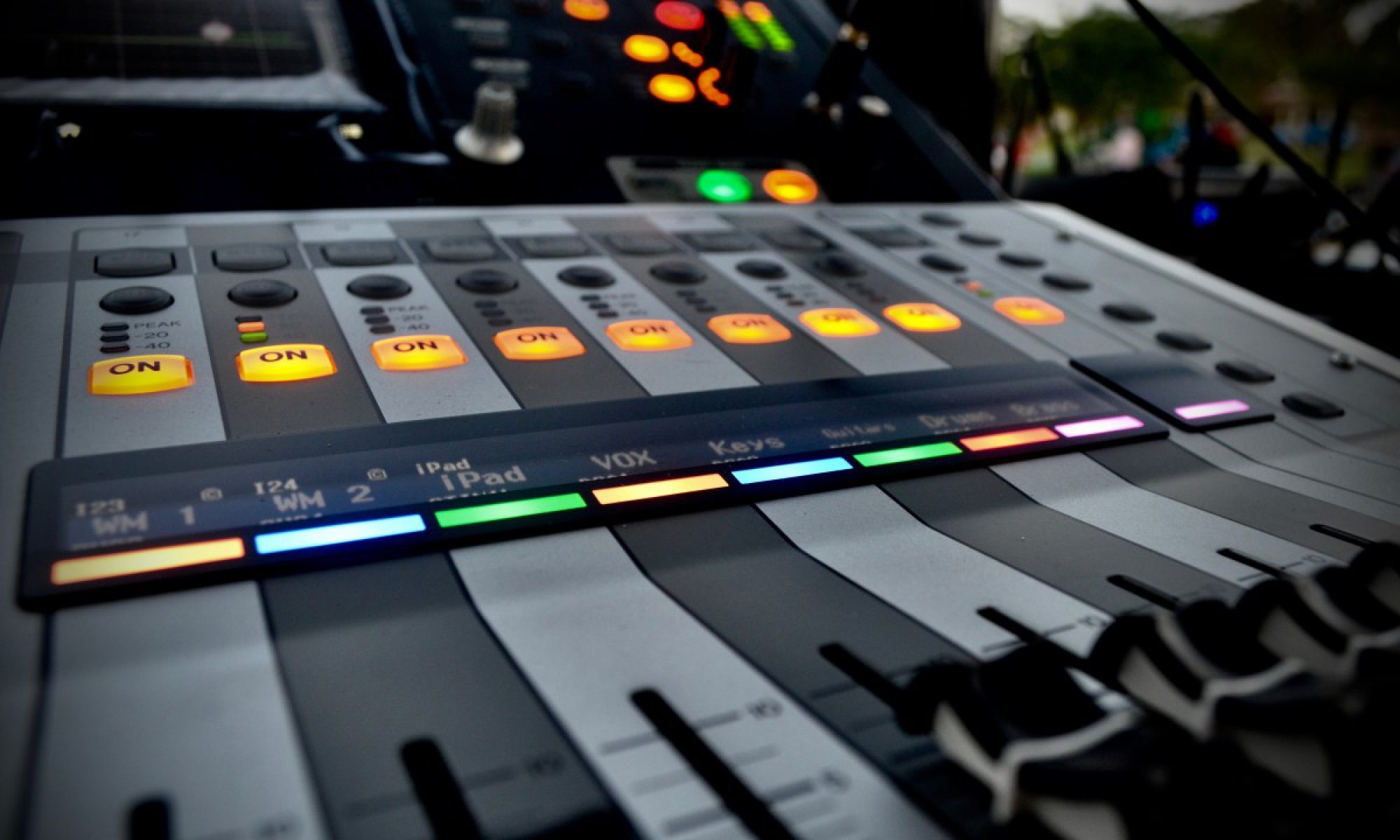This round of back to the basics is focused on differentiating between two related but different tasks that we need to do while we prepare for any event, recording, or live show. They are line checking and sound checking. The biggest red flag is when you stop doing both on a regular basis. There are a few exceptions for places like Houses of Worship where there is often no change in band setup between weeks (this does mean that if you change something you need to be sure to do a line check before rehearsal starts). On the whole, as we discussed in the first part of this series, the key here is to be completely ready before any band members arrive. I’m not going to lie here, there are have been several weeks when I haven’t been so diligent at making sure that my stage is completely ready for the artists who will perform each week at our weekend services. Each time it seems, I find myself running around fixing small problems that should have never been an issue if I had done a line check before rehearsal started.
What exactly is a line check you ask? Well that depends on the context really. Sometimes, like on a tour, line check means simply going through each input all the way back to the source and making sure you are getting clear audio with no ground hums or breaks at each new venue. For a corporate event it may mean going through all the wireless channels and checking to make sure there aren’t any RF issues that will cause issues down the road when you don’t have any time to troubleshoot them. For a studio, its about making sure your DAW is routed correctly and the audio from each mic is as clear as possible. Lastly, for a church, it’s checking to make sure that there wasn’t any visible damage to gear or wiring that week that you didn’t notice and that everything is patched in correctly. At CCC, whenever we do a big layout change or a set build and it all has been taken apart, it’s important that I take the time to verify clear audio and correct patching as we have several points of failure/patching in our signal chains from things that were likely disassembled because of the set change. Often I do this step with that first stage setup after a set change or a big changeover after an external event or a special event like Christmas or Easter. Because we maintain our own drum set and keyboard I’ll also take the time here to make sure that aren’t any glaring issues with drum heads or within Mainstage. I try to always remember that when I don’t check or when I settle in and assume that nothing will go wrong is usually when it does and most often when we aren’t adequately prepared to quickly solve the problem.
If that’s what a line check is here is what a sound check should be, what we actually do with the band before rehearsal starts. Sound check is meant to be for setting monitor mixes and dialing in the basic settings of the FOH soundboard so that when the run-through begins everyone is able to focus on improving our area without needing to worry about finishing setup or ironing out details. At CCC our soundchecks begin with the click and additively progress through each instrumental input (we hear the whole drum set, than add the bass guitar, add the electric guitar, etc, so that at the end each musician can hear it all together and the first song sounds a lot better). During this time I always try to make sure at least a basic mix is up and on in the room so the musicians are sure to set levels in response to house levels and not in isolation since the PA will be on during the event. At the very least we make sure the band on the lead vocalist mics are up and open so we can be sure to listen for feedback issues that will likely show up right away if they exist. In the studio world this is primarily for monitoring setup and making sure everything in the DAW is working properly before we start recording. For simpler corporate events this is usually just long enough to put headsets on speakers and get them live on the stage to make sure everything is going to sound great for the event.
In any case, to reiterate, do your best to be finished line checking by the time musicians and vocalists arrive. As technicians, we need to be sure to honor the time of our artists or customers and make sure that we have already line checked the gear before they arrive so we can get right down to business when it’s time for sound check and rehearsal.
